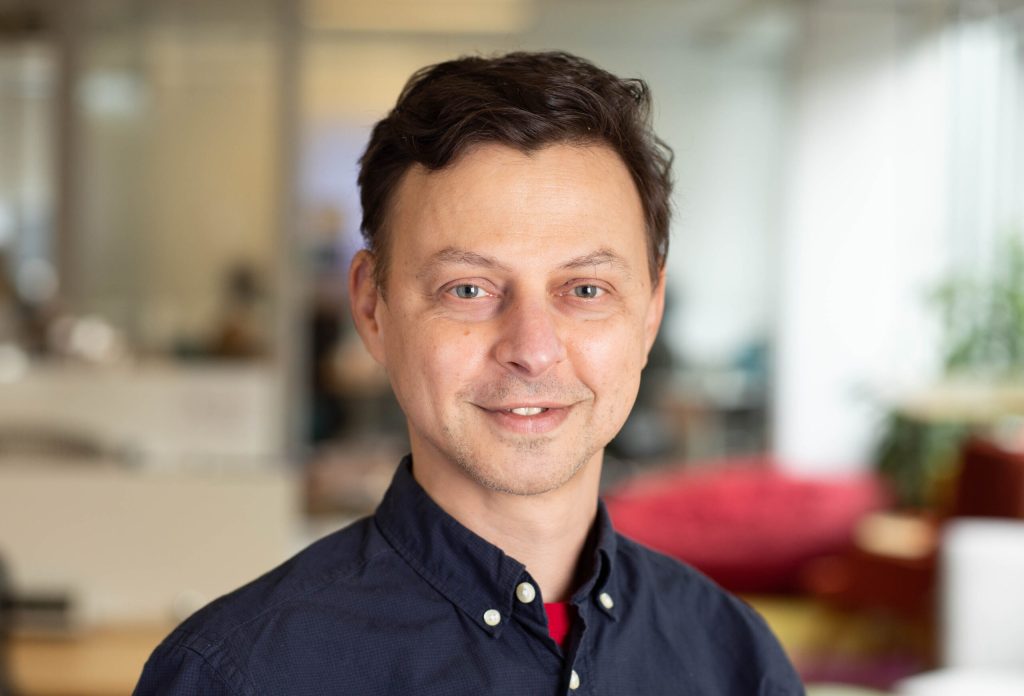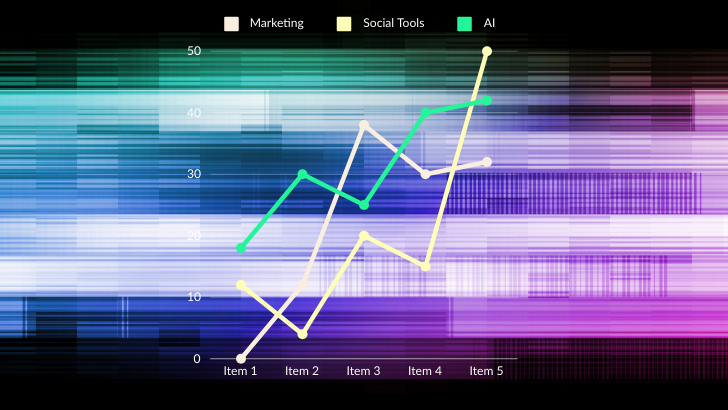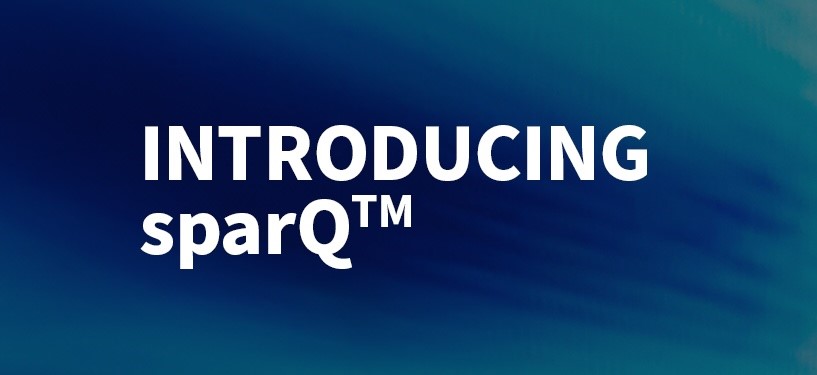As an emerging technology, artificial intelligence at best is misunderstood and, at worst, evokes fear. Tools like ChatGPT and Google’s AI Bard continue to dominate headlines. Will AI replace jobs? Enable cheating on homework? Make us less human?
Gershon Goren, Founder and CEO of Cangrade, is not afraid. In fact, he’s optimistic. Although he is quick to point out he believes AI should be heavily scrutinized and regulated, to him, what has come to be known as AI, is simply the next evolution of technological progress. This next phase, he emphasizes, will not make us less human, but rather more, by freeing professionals to focus on the personal touch that they provide best.
MassTLC spoke to Goren about the semantics surrounding AI (including the different types), what he’s excited to see as the field evolves, and how executives should think about incorporating AI tech in their organization now.
“There’s not a single semblance of doubt in my mind that companies who choose to ignore AI and attempt to stick to the old methods of doing things will quickly fall behind,” says Goren. “It will be as if, at the time of the Industrial Revolution, they decided to stick with manual labor. Change management is always hard, and leaders definitely need to be very careful and cautious in how they choose to approach this, but they still need to adapt.”
Read on for more in his own words.
___
Could you introduce yourself and Cangrade?
My name is Gershon Goren, and I’m the CEO of Cangrade. Our mission is to empower talent management teams by giving them a strategic seat at the table. We give HR the tools to make targeted decisions that relate to the overall company goals, whether those are related to efficiency, business results, retention, etc. Most importantly, we empower them to do this equitably. Equity has been more in the news lately, but we always saw it as one of the main purposes for the company. Cangrade’s solution gives an absolutely equal and fair chance to everybody. Our guarantee is no bias. To achieve this, we validate every model that we create and run additional bias analysis. If we find biases, we alter the model as needed. Every model we release to our customers is bias free.
I’ve been a part of the team since 2014 when I partnered with researchers out of Harvard, who came up with the approach that we are pursuing to this day. The core of what we do is about utilizing data to the best degree possible to inform companies, and specifically Human Resources, about possible outcomes for employees in the context of hiring as well as in professional development.
When we started in 2014, the field of AI was not really in the public consciousness. At the time, the particular lab in Harvard where one of Cangrade’s co-founders conducted his research was experimenting with the latest machine learning techniques. Taking a lot of data, learning from it, and building a model that could predict some outcome was not a new concept, but this was a time when computing and algorithmic capabilities significantly improved so that solving problems that would have previously required an immense amount of time became a matter of just using the right technology.
The researchers realized there was something interesting when they started experimenting with personality data, also known as psychometric data, and employment outcomes. It turned out that not only can psychometric data be indicative of these outcomes, but, in fact, they’re one of the strongest predictors of results when combined all together.
There is, of course, no one trait that guarantees to make a good employee, but a combination of a relatively large number of different attributes can serve as a much better predictor. The predictive power of this approach is significantly greater than the predictive power of a job interview.
How and why has Cangrade chosen to use AI as a solution in the talent space?
When we started, what we do was not known as AI. It was still thought of as “data science,” which evolved to “machine learning,” and now “AI.” Really, it’s just labeling.
When it comes to AI, there are no strict definitions. I would claim that real artificial intelligence still does not exist, but so far there are two distinct groups of what is commonly labeled as AI. There is a General AI, which can be used for almost any purpose, and has become popular recently. ChatGPT is a great example of General AI. General AI is like talking to a very smart person who can be very wrong but still speak with confidence. There is also Narrow AI, which has a specific purpose and typically knows how to do one thing extremely well. It takes specific inputs and produces specific outputs. Narrow AI is what Cangrade does.
“AI” is just an umbrella term that is slapped on everything using data science and machine learning to make these ideas easy to articulate as they advance, but, yes, the term can also sound threatening. Just like any technology, AI can be used for good and for ill. This is where the idea of Ethical AI becomes very important. Cangrade fits into this category, meaning that the focus is on relevance, accuracy, and transparency. We patented our methodology, which means we give full disclosure of what is going on behind the scenes, how it all works and what allows us to provide a bias-free guarantee.
I believe that the AI Industry should be tightly regulated, not unlike energy, transportation and healthcare. The cost of irresponsible or malevolent actors in this space will be prohibitive for society. There have been steps forward in this direction already, including legislation in California, New York City, and the U.S. Congress. Legislation is only a matter of time, and I really hope that it will not take too long for this to happen.
“I believe that the AI Industry should be tightly regulated, not unlike energy, transportation and healthcare.”
What about the potential of AI technology most excites you?
AI will impact many aspects of our life, but in general I look forward to what AI can do specifically in the field of talent management, as far as bringing us back to a much more personalized approach to HR. This is almost ironic, because we’re talking about robots; but nonetheless, this kind of approach can allow talent management teams to become much more personal, much more tailored to each employee’s needs.
I’m excited about what this technology can do with group dynamics, like building effective teams. Education and professional development will also be reshaped by the use of AI. We’re getting there. We will see an unprecedented amount of innovation in this area in the upcoming months and years.
Things are moving fast, and if companies want to succeed, they need to move away from old talent solutions that were conceived decades ago. A lot of things have changed culturally since then, and with AI, organizations can do much, much better. This is about the personalization of everything relating to a person’s professional career, really helping them to connect with the best way to self-fulfill and develop. That’s the outcome that I’m most looking for in the next five-ten years.
How should executives think about AI right now? Is this technology something that leaders should plan to incorporate in the next five, ten years? What sense of urgency should there be within an organization, and how can leaders take action now?
There’s not a single semblance of doubt in my mind that companies who choose to ignore AI and attempt to stick to the old methods of doing things will quickly fall behind. It will be as if at the time of the Industrial Revolution, they decided to stick with manual labor. Change management is always hard, and leaders definitely need to be very careful and cautious in how they choose to approach this, but they still need to adapt.
Smart companies and companies that will be most successful will invest in acquiring internal data and AI expertise, rather than just relying on products and vendors. This will allow them to make the best decisions about where and how to implement AI powered solutions for achieving their goals.
I don’t want to sound overly dramatic, but just to reemphasize: if you ignore AI, you will lose. This is a revolution on par with the agricultural revolution, industrial revolution, and electricity. To say it would be a mistake to ignore AI in your business is an understatement.
“This is a revolution on par with the agricultural revolution, industrial revolution, and electricity. To say it would be a mistake to ignore AI in your business is an understatement.”
How does Cangrade help organizations innovate?
Cangrade is a SaaS company. We provide Software as a Service, and depending on the strategic intention of a customer, we can be engaged on the consultative side.
We offer a tool for HR, not a replacement. Cangrade helps to make the HR workflow more efficient, more accurate and more equitable. Our system requires less time from everybody, including the candidate, which means recruiters don’t have to spend time on mundane, repetitive tasks like phone screening.
We’re not just serving employers, as it might seem. Yes, our target market and our customers are companies and employers, but Cangrade also exists to serve employees and job seekers by helping to match them to the jobs where they can succeed. Retention and job satisfaction are important KPIs; employee wellbeing is directly related to company success. These are synergetic goals. We serve job seekers by identifying jobs where they can be successful and most engaged. Another part of what we do is on the development side: we use our modeling tools to identify which competencies will move people in the direction of becoming better employees. If we can help people to be more successful in the organizations they’re already in, we definitely help organizations.
What’s next for Cangrade?
Without giving away too much, we see a lot of opportunity and demand for the post-hire domain in terms of existing employee talent development. We already work with companies to identify development priorities for employees and their supervisors, but our goal is to make it even more actionable. We will definitely be doubling down in this space.
___
Further reading from Cangrade: Is AI Going to Replace Recruiters?




